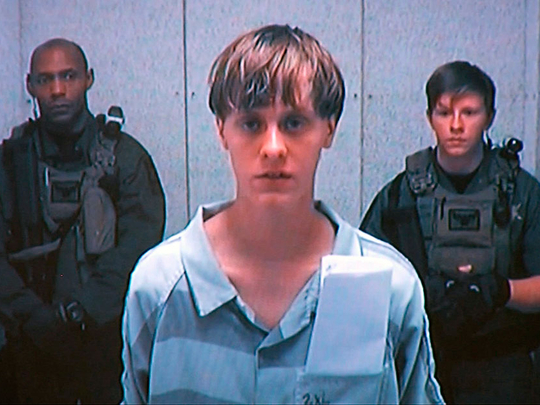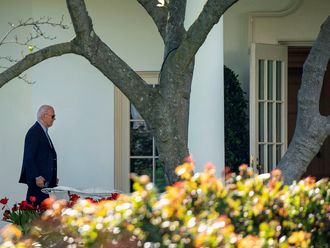
Washington: Prosecutors in South Carolina will seek a death sentence for Dylann Roof, the man accused of killing nine black parishioners in a Charleston church earlier this year.
Roof has been charged with nine counts of murder and three counts of attempted murder for the June massacre inside the historic Emanuel African Methodist Episcopal Church (AME) Church.
“This was the ultimate crime, and justice from our state calls for the ultimate punishment,” Scarlett Wilson, the prosecutor for Charleston County, said during a news conference Thursday. Earlier in the day, court documents were filed showing that the state intended to seek the death penalty for Roof.
Under South Carolina law, prosecutors can seek a death sentence if there are certain aggravating factors in a case including if someone is charged with murdering more than one person during a single act.
South Carolina Gov. Nikki Haley had said Roof should face the death penalty after the June 17 shooting spree. Wilson said after the shooting that she would have conversations with the victims’ families before making a decision about the death penalty, saying that they “deserve to be involved in any conversations regarding the death penalty.”
On Thursday, Wilson described having many meetings with survivors of the shootings as well as relatives of the victims, saying that she was “blessed to be in the presence of such wonderful people.”
At Roof’s first court appearance two days after the shooting, relatives of the victims addressed Roof directly, telling him they forgave him and were praying for his soul.
“We all agree that forgiveness can be an important part of the healing process, but know that forgiveness does not necessarily mean foregoing consequences, even severe consequences,” Wilson said Thursday.
In South Carolina, inmates on death row can choose between lethal injection and electrocution.
Roof has also been indicted on federal hate crime charges alleging that he attacked the parishioners inside the “Mother Emanuel” church specifically due to their race and the church’s larger renown. In addition, the federal indictment states that he attacked people who were exercising their religious beliefs.
Days after the massacre, authorities confirmed that Roof had posted a racist manifesto on his website, filled with racial stereotypes and diatribes against black, Jewish and Hispanic people. In one part of the rant, Roof criticised people who only talked online and declared his desire to take action.
“We have no skinheads, no real KKK, no one doing anything, but talking on the internet,” he wrote. “Well someone has to have the bravery to take it to the real world, and I guess that has to be me.”
The site was also filled with photos of Roof holding a .45-calibre Glock pistol and a Confederate flag. One official said it was last modified just hours before the shooting took place.
The federal charges also carry a possible death sentence, though Attorney General Loretta Lynch said in July that the federal government would conduct a review of the issues involved before deciding if it will seek such a punishment. No determination has been announced.
An attorney said in July that Roof intends to plead guilty to the federal hate crime charges, but he could not advise him until federal officials made a decision on the death penalty. As a result, the magistrate in that case entered a not guilty plea for Roof.
When Lynch announced the federal charges, she did not say how they would affect the state’s case, only describing them as a “parallel” prosecutions.











